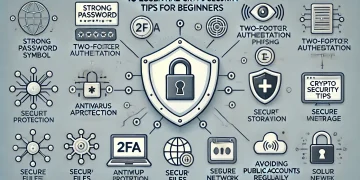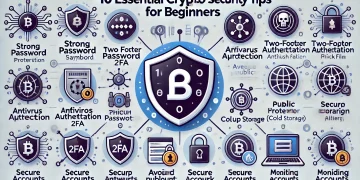The cryptocurrency market is known for its cycles of bull runs and bear markets. After the highs of 2021 and the corrections of 2022-2023, many investors and analysts are anticipating the next major rally—the crypto bull run of 2025. But what factors will drive the market to new highs, and which cryptocurrencies are expected to perform the best?
In this article, we will explore the key factors that could fuel a crypto bull run in 2025, predictions for Bitcoin and altcoins, and strategies investors can use to maximize profits during the next market surge.
Understanding Crypto Bull Runs
A bull run refers to a period in the cryptocurrency market when prices rise significantly over an extended period. During these times, investor confidence is high, institutional adoption increases, and trading volumes surge.
Key Characteristics of a Crypto Bull Run:
✅ Bitcoin Leads the Market – Historically, Bitcoin (BTC) initiates the bull run, and altcoins follow.
✅ High Investor Confidence – More retail and institutional investors enter the market.
✅ Increased Trading Volume – Crypto exchanges report record-breaking trading activity.
✅ Mainstream Adoption – More companies, governments, and individuals start using cryptocurrency.
The last major crypto bull run happened in 2020-2021, when Bitcoin reached an all-time high of $69,000, and altcoins like Ethereum, Solana, and Cardano saw explosive growth. Will history repeat itself in 2025?
Factors That Could Drive the Crypto Bull Run 2025
1. Bitcoin Halving Event (April 2025)
One of the most significant events influencing the crypto bull run of 2025 is the Bitcoin halving scheduled for April 2025.
🔹 What Is Bitcoin Halving? Every four years, Bitcoin’s block rewards are cut in half, reducing the number of new BTC entering circulation. The next halving will lower mining rewards from 6.25 BTC to 3.125 BTC per block.
🔹 Why Is This Important? Bitcoin halvings have historically preceded bull runs:
✅ 2012 Halving → BTC surged from $12 to $1,000 in a year.
✅ 2016 Halving → BTC rose from $650 to $20,000 in the next bull run.
✅ 2020 Halving → BTC climbed from $8,000 to $69,000 in 2021.
If history repeats, the 2025 halving could set the stage for a Bitcoin bull run in 2025, pushing prices to new highs.
2. Institutional Adoption of Cryptocurrency
🔹 Big investors are entering the crypto market.
🔹 Companies like Tesla, MicroStrategy, and BlackRock are investing in Bitcoin.
🔹 Bitcoin ETFs could bring billions of dollars into crypto markets.
Institutional adoption increases liquidity and reduces volatility, making crypto investments more attractive to large-scale investors. If adoption continues, 2025 could see a massive influx of capital into the crypto space.
3. Global Economic Conditions and Inflation Hedge
🔹 Fiat currencies continue to lose value due to inflation.
🔹 Governments are printing more money, decreasing purchasing power.
🔹 Crypto, especially Bitcoin, is seen as a hedge against inflation.
If economic uncertainty continues, investors could turn to Bitcoin and crypto as a store of value, pushing prices higher.
4. Technological Advancements and Layer 2 Solutions
🔹 Ethereum 2.0 and Layer 2 Scaling – Reduces gas fees and increases transaction speed.
🔹 Solana, Cardano, and Polygon – Competing to improve blockchain scalability.
🔹 Interoperability Protocols – Allowing different blockchains to connect seamlessly.
These technological advancements make crypto more efficient, user-friendly, and accessible, driving demand for digital assets.
5. Regulatory Clarity and Government Support
🔹 Clear regulations could encourage more institutional investors to enter crypto.
🔹 Countries adopting crypto as legal tender could boost market confidence.
If governments create pro-crypto policies, the crypto bull run in 2025 could be even stronger than previous cycles.
Predictions for the Crypto Bull Run 2025
While predicting exact prices is difficult, analysts believe Bitcoin and other top cryptocurrencies will see massive growth during the next bull run.
Bitcoin Price Prediction for 2025
📈 Bullish Scenario: BTC reaches $150,000 – $250,000 if institutional adoption increases.
📉 Bearish Scenario: BTC stabilizes between $80,000 – $100,000 if regulations slow adoption.
Best Altcoins to Watch in 2025
1. Ethereum (ETH) – The Smart Contract Leader
✅ Ethereum 2.0 upgrades will improve scalability and lower gas fees.
✅ Institutional adoption continues to rise.
📈 Price Prediction: $8,000 – $12,000
2. Solana (SOL) – High-Speed Blockchain
✅ Fast transactions, low fees, and a growing ecosystem.
📈 Price Prediction: $300 – $500
3. Cardano (ADA) – Strong Community Support
✅ Cardano’s smart contracts are expanding rapidly.
📈 Price Prediction: $5 – $8
4. XRP – Banking and Payments Solution
✅ If Ripple wins its legal battle with the SEC, XRP could explode.
📈 Price Prediction: $3 – $5
5. Polygon (MATIC) – Scaling Ethereum
✅ Polygon is becoming essential for Ethereum scaling solutions.
📈 Price Prediction: $5 – $10
These top altcoins could see 100x or more gains in the next bull run.
Investment Strategies for the Crypto Bull Run 2025
To maximize profits in the next bull run, follow these smart investment strategies:
1. Accumulate Before the Bull Run Starts
🔹 Dollar-Cost Averaging (DCA) – Invest small amounts regularly instead of buying at peak prices.
2. Diversify Your Portfolio
🔹 Hold a mix of Bitcoin, Ethereum, and top altcoins.
🔹 Avoid investing everything in one coin.
3. Take Profits Along the Way
🔹 Don’t wait for the absolute peak – take profits at key resistance levels.
4. Secure Your Assets
🔹 Use hardware wallets (Ledger, Trezor) to protect your crypto.
🔹 Enable 2FA on all exchange accounts.
5. Stay Updated with Market Trends
🔹 Follow crypto news, influencers, and technical analysis.
🔹 Use trading tools and alerts to catch market movements.
Final Thoughts: Will 2025 Be the Biggest Crypto Bull Run Yet?
The crypto bull run 2025 is expected to be driven by Bitcoin halving, institutional adoption, DeFi expansion, and blockchain innovations. If history repeats, we could see Bitcoin hitting $150,000+ and altcoins experiencing massive gains.
📌 Key Takeaways:
✅ Bitcoin halving will reduce supply, increasing BTC’s value.
✅ Institutional investors are entering crypto at record levels.
✅ Top altcoins like Ethereum, Solana, and Cardano will benefit from increased adoption.
✅ Smart investors should start accumulating now before the next bull run begins.




























